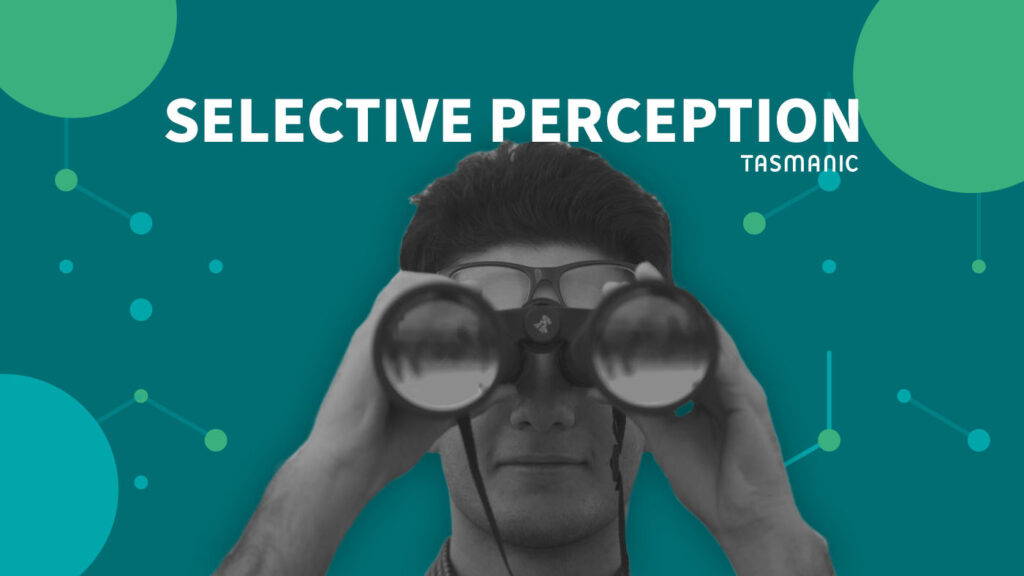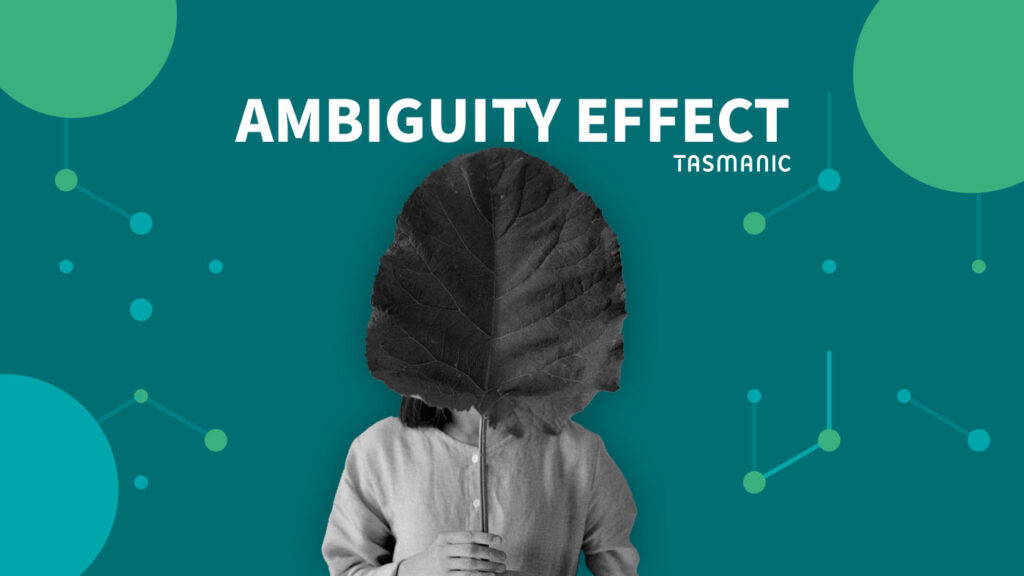
Introduction
I see, I see, what you don't see ... because I find it interesting and you probably don't! How is it that consumers totally overlook some information, while you are convinced that the message is so clear? That's what we call selective perception. A cognitive fallacy that you as an entrepreneur consciously or unconsciously often have to deal with!
What is selective perception?
Selective perception is the tendency to forget or even not notice things that make you uncomfortable or conflict with your values and norms more quickly (Sincero, 2013).
Selective vigilance refers to the process in which an individual sees and recognizes stimuli that are important to him in some way. Selective defense occurs in an attempt to create a barrier between the stimuli and the individual to protect the individual from noticing the stimuli. Selective perception is often subdivided again into selective attention, selective interpretation, selective retention and selective exposure. The basis of selective perception theory is rooted in cognitive dissonance theory (Festinger, 1957).
How does selective perception arise?
You perceive only a small portion of reality consciously. If we perceive everything we could see, hear, taste, smell and feel, those are simply too many stimuli for our brains. Because you think certain things are more important than others, your focus is only there. Depending on your frame of reference, you may or may not be open to seeing or receiving certain information. Everything else we perceive, but not consciously. So the frame of reference acts as a kind of filter to protect you from too much stimuli and impressions. You can't pay attention to everything at once, so your brain makes choices. This happens automatically (Steven Lucas Counseling, 2009).
Examples in practice
- Ask any passerby what they notice about this street. Someone who is hungry might say that there are very few eateries, someone with a toddler might say that they drive very fast here, and someone who loves animals might remark that the dogs here are all on a leash.
- When you visit an online store because you are looking for orange sneakers, you will probably not consciously see or ignore all the other results in your search.
- On the team you are a fan of, you don't notice violations as much, while on the opposing team you see them (Hastorf & Cantril, 1954).
- Strategic decision-making: entrepreneurs may be prone to selective perception when analyzing market trends or competitive behavior, focusing on information that supports their existing plans or beliefs.
- Reviews: Entrepreneurs may selectively pay attention to positive feedback and reviews while overlooking or ignoring negative criticism, which can lead to a distorted view of their product or service.
Using selective perception to your advantage
As a business owner, you must take into account the selective perception of your potential customers:
- Speak your customers' language and use words and phrases they use.
- Get to know your customers better; what do they often think about, what are their interests, what do they google?
- Make sure information that can confirm their choice is readily available. For example, consider a review widget in the header of your website.
- Make use of multiple senses, i.e. (moving) visual advertisements as well as textual ones.
Resources
Festinger, L. (1957). "A Theory of Cognitive Dissonance." United States of America. Row, Peterson and Company.
Hastorf, A. H., & Cantril, H. (1954). "They saw a game; a case study." The Journal of Abnormal and Social Psychology, 49(1), 129-134.
Sincero, S. M. (2013). "Selective perception." Retrieved February 4, 2023, from https://explorable.com/selective-perception
Steven Lucas Counselling (2009). "Psychology Definition Of The Week: Selective Perception." Retrieved March 18, 2013, from https://web.archive.org/web/20120416014147/http://counsellingcentral.com/psychology-definition-of-the-week-selective-perception
Is your company missing opportunities?
Our pay is based on your results.

















 Team
Team FAQ
FAQ Prices
Prices Vacancies
Vacancies Contact
Contact Marketing
Marketing SEO
SEO SEA
SEA Strategy
Strategy Sales
Sales Optimization
Optimization AWR
AWR Ahrefs
Ahrefs Channable
Channable ContentKing
ContentKing Leadinfo
Leadinfo Optmyzr
Optmyzr Qooqie
Qooqie Hubspot
Hubspot Semrush
Semrush




